On vacation, the social differences are often very obvious. Luxurious hotel located next to a slum. On the way to the beach, children try to sell you odds and ends. Maybe you have asked yourself in such situations: What influence (or what responsibility) do I have as a tourist? And above all: How can I help? Socially sustainable travel or social sustainability in tourism is a complex topic. Let’s try an approach.
What is sustainable about social engagement?
Sustainability involves thinking about tomorrow. It is the opposite of the deluge after me. Many people initially think of resource conservation, species protection, or preserving the ozone layer as conservation goals. Fair payments and the reduction of poverty are not initially associated with them. Is it different for you?
Sustainability or sustainable travel not only protects the environment and counteracts climate change. It also helps to build a society with respect and without exploitation, and keeps the rich and poor from getting even more separated.
Social sustainability in tourism works externally (assuming social responsibility in the region and towards marginalized groups in society) and internally (towards employees).
The social aspect must be equal to the eco aspect on vacation
Based on the pillars of sustainability model, which has been an international guideline since the World Summit in Johannesburg in 2002, the social aspect is of equal importance to the pillars of ecology and economy. Sustainability can only be achieved if environmental, economic and social goals are implemented simultaneously with equal weighting.
Concrete social aspects in the tourism industry
- fair payment
- permanent contracts
- Education and training opportunities
- Health insurance / health protection
- Child Protection
- Integration
- Inclusion
- Promotion of regional crafts
- Promotion of regional art and culture
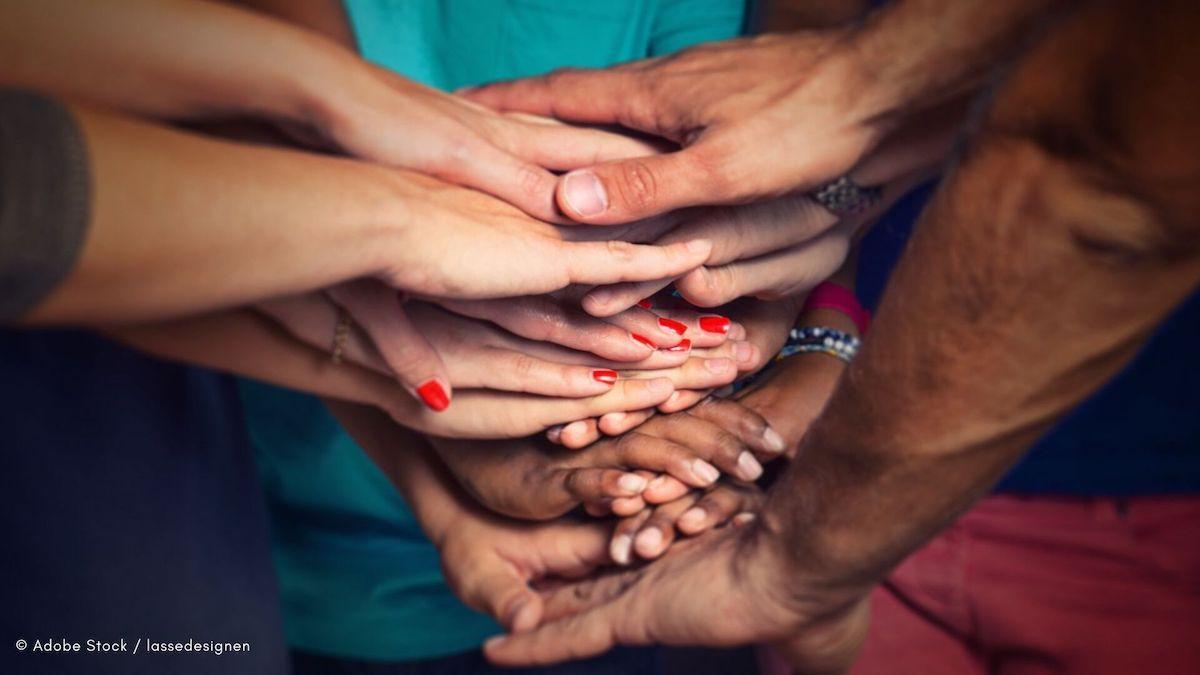
What we can do ourselves | Small things to travel socially sustainably
Buy instead of donate
A good experience for me was when I was traveling near Hebron, Palestine, about 15 years ago for a report. A few women tried to sell me their embroidered shawls. I didn’t like the dusty and musty “store” in the small Bedouin village. I would rather not purchase anything. Likewise, I sent a monetary donation when I returned to Germany a month later because of the warm-hearted people there. At that moment, I realized: I would have been better off buying the scarves! Especially the minimalists of us don’t like to buy just anything. Keychains, fridge magnets, scented papers … Meanwhile, I like to buy things from people and give them away at the next opportunity (unless it’s the last plastic junk)

Think about who you spend your money with
Imagine you buy a cuckoo clock in the Black Forest, and it says, “Made in China” on it. That would be rather foolish, wouldn’t it? Especially if you’re happy to see real woodcarving workshops in the village, apart from big chains and franchises. In the SCHWARZWALD PANORAMA in Bad Herrenalb, there is a small store right in the hotel selling local products (including cuckoo clocks). The promotion of local crafts is also evidence of social responsibility.
Do not get annoyed with tourist nonsense
My experience is that German tourists are especially afraid of being ripped off by market traders, cab drivers, and souvenir sellers. It is, of course, frustrating when you buy something for 20 dollars and then hear later that locals pay only 2 dollars.
But what if we change our attitude towards such situations? I no longer ask myself: How much does it cost here? But rather: How much is it worth to me? For example, I was once laughed at because I paid 30 euros for a decorative pillow. Then I said: 30 euros for needlework is not much money. And the cushion was worth it to me!
Should I give money to begging children?
Especially if you are traveling in poorer countries, you will inevitably be confronted at some point with children who want to sell you little things or beg. A really difficult situation.
Tourism Watch and SOS Children’s Villages recommend not buying anything and not giving money. This would only increase the number of children who are on the streets and who are instrumentalized by adults tobeg or sell drugs. Support targeted projects and NGOs that work on behalf of children in the country is recommended by the two organizations. These could be local sports clubs, schools or community centers, for example.
You should familiarize yourself with the conditions in the country beforehand. In Palestine, for example, you are directly supporting the family and siblings by buying from children. If I actually weaken, then I try to pretend that I would really like to have these chewy sweets now. At least for the moment, the kids are happy. However, this behavior should not become the rule. Then I’d rather donate to a project that I can perhaps even see on site.
Support projects on site
Making conscious choices helps you travel in a socially sustainable and responsible way. For example, by choosing your accommodation, you can support projects that work for the local community, hire local employees, or engage in other social activities.
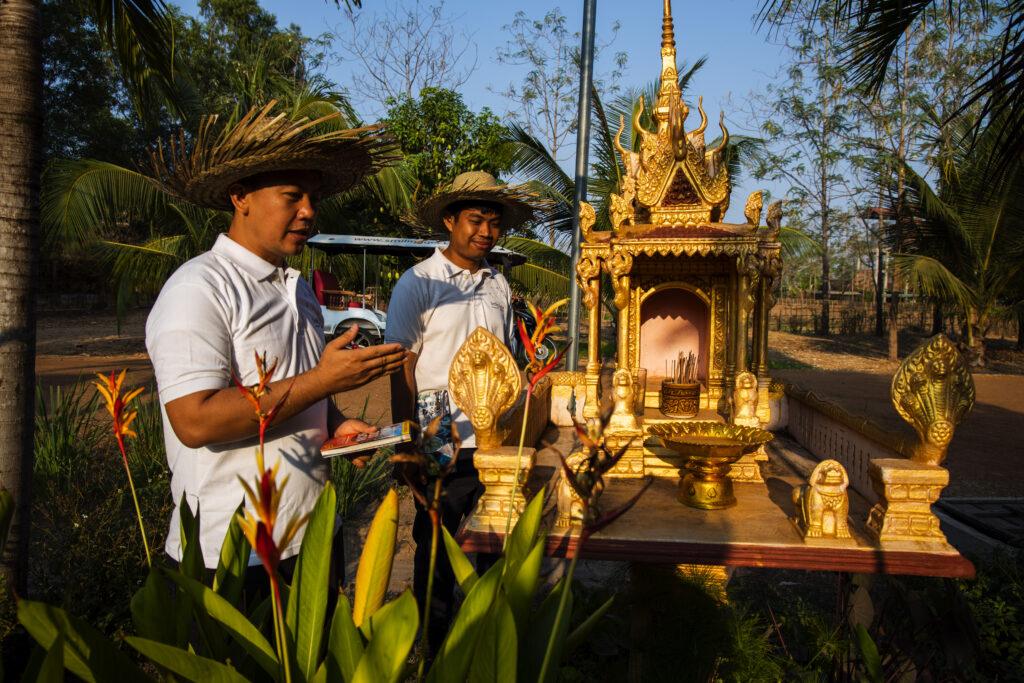
Farmhouse Smiling Gecko in Cambodia
Our partner, the Smiling Gecko Farmhouse in Cambodia, for example, creates prospects by offering training and jobs. Poverty, and child poverty in particular, is a major problem in Cambodia. According to Humanitarian, 10% of children do not go to school. Only 20% of girls attend secondary school. Many people are malnourished, there is a lack of clean drinking water for the rural population, and there is a lack of health care. Searching for work, many children are sexually exploited. In such a system, where the state cannot sufficiently protect the children, the future, private initiatives like Smiling Gecko are enormously important. The initiative includes training centers for various trades, such as bakers or carpenters. Some of them also have the opportunity to later work directly at the Smiling Gecko farmhouse, where 40 workers currently enjoy above-average pay and a secure livelihood.
Social sustainability in tourism in Thailand
The local population is committed to the luxury resort Keemala on the island of Phuket. Keemala deliberately buys food from local fishermen and farmers. They also support the on-site child development center and provide jobs for the region.
Additionally, Zeavola Resort on Ko Phi Phi supports the local Baan Laem Tong School. The remote location makes it hard to get public funding, so Zeavola’s help is critical. Three dollars per guest are donated to a lunch program that guests can also attend on-site. Zeavola cooks for students and teachers on Fridays, while teachers do the cooking on other days. It is especially cool that the children have a say in the menu. In a vote, they express their preferences. A vote is taken after five or six suggestions are made.
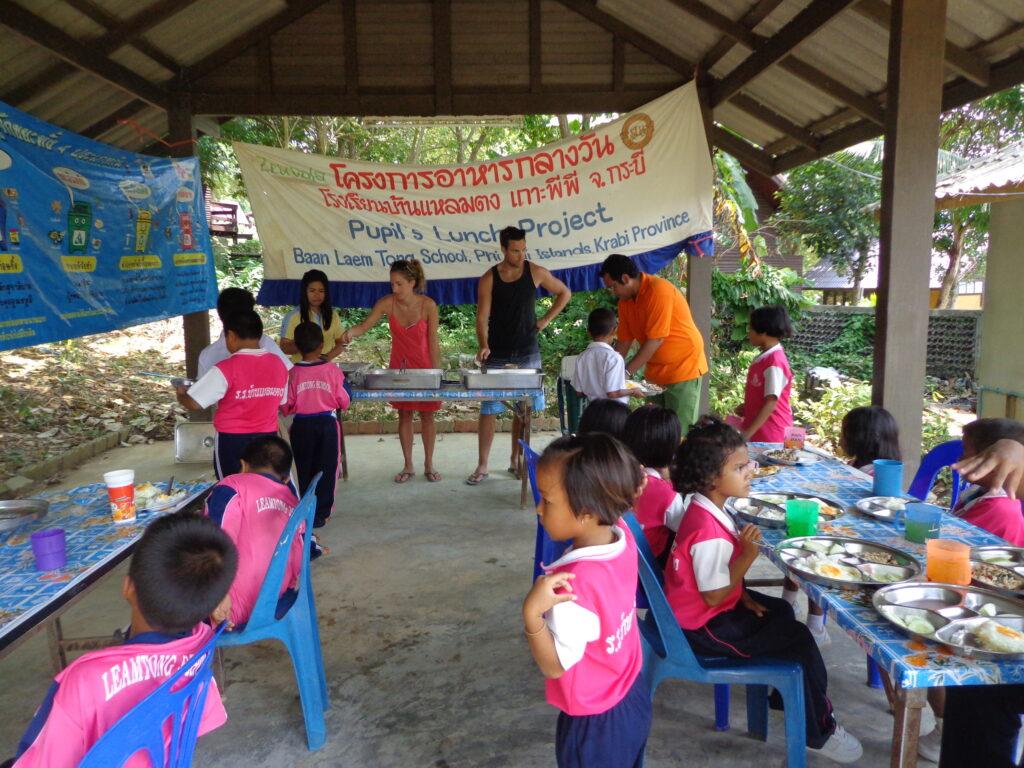
The gap between rich and poor is also widening in Europe
Every four years, the German government examines the development of poverty and wealth in Germany. The latest report from 2021 shows that (as in all industrialized countries) the poor are getting poorer and the rich are getting richer. This means that social sustainability is also an important issue here.
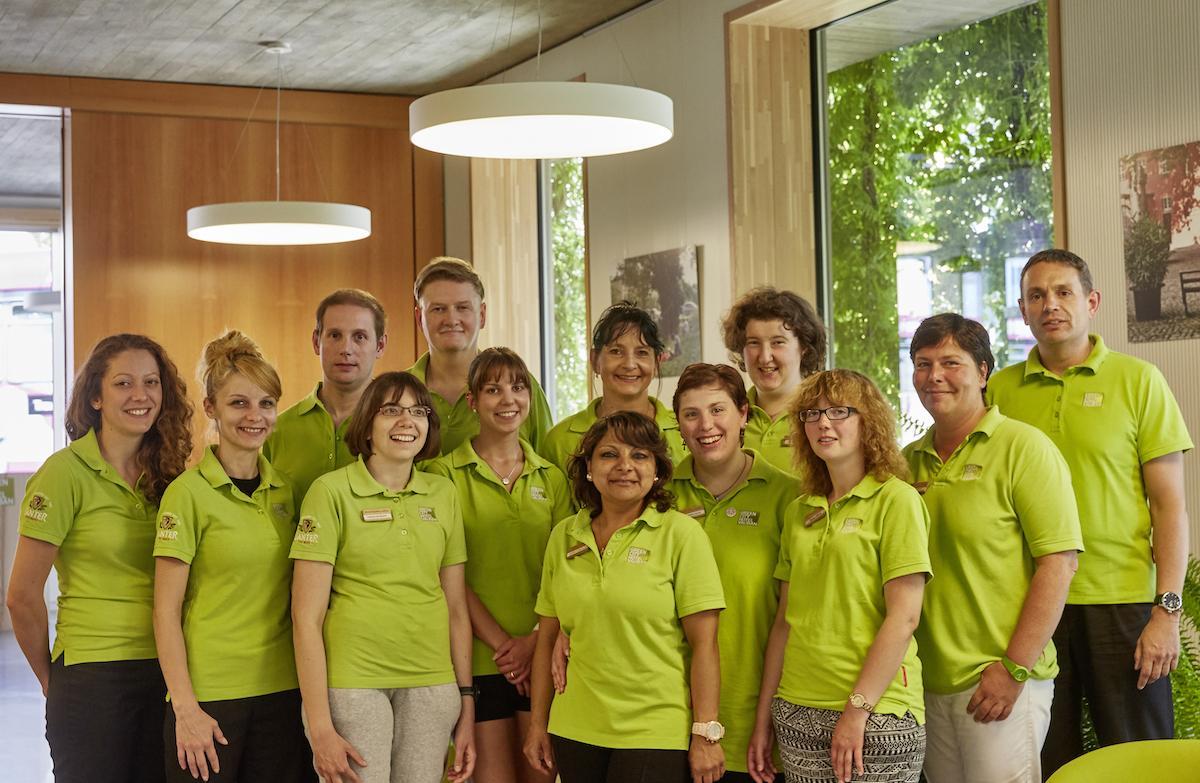
Inclusion of people with disabilities
A clear example of a socially sustainable tourism concept in Germany is the Green City Hotel Vauban in Freiburg. It is run by a non-profit company and employs 50% people with disabilities. Inclusion and fairness are also considered with partners and suppliers.
Waiver of seasonal workers
Our Green Pearls® accommodations work with a permanent staff out of conviction and deliberately do not employ (cheaper) seasonal workers. To name just a few examples: At the Zermatt Hotel Bella Vista in the Swiss Alps, the hotel is run by a family, and you get the feeling that the staff has also become part of this family.
The Bavarian Hotel Klosterhof employs around 100 people and focuses on long-term employment and further training measures. Seasonal workers, temporary workers and cheap labor do not exist here.
Support local artists
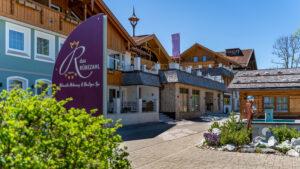
Van Gogh or Leonardo da Vinci were undeniably great artists, but we prefer to admire their paintings in the original in the museum, rather than as a copied poster in the hotel room, right?
Instead, many hotels take the opportunity to support contemporary and regional artists and offer them a platform. At Hotel Das Rübezahl in the Allgäu, for example, you will find art objects by the artist Bernhard Czeschlick in the garden. His workshop and gallery Eigenart is about 25 minutes by car from the hotel and the Thurm family will be happy to organize a tour for you.
You can read more about the collaboration between artists and sustainable hotels in this blog article.
Closing thoughts – Social sustainability in tourism
There are many opportunities in the tourism industry – on the one hand, you see that life can be quite different, and on the other hand – it has to be said – there is a lot of money involved. If you don’t leave the money in the big hotel chains, but support accommodations with social commitment or local projects, this is a contribution to a more social tourism and thus also to a better world.
Do you want to save this article so you can look at it again later? Then use one of the pins or the button at the end of the article!
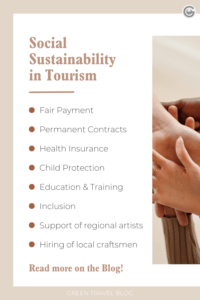

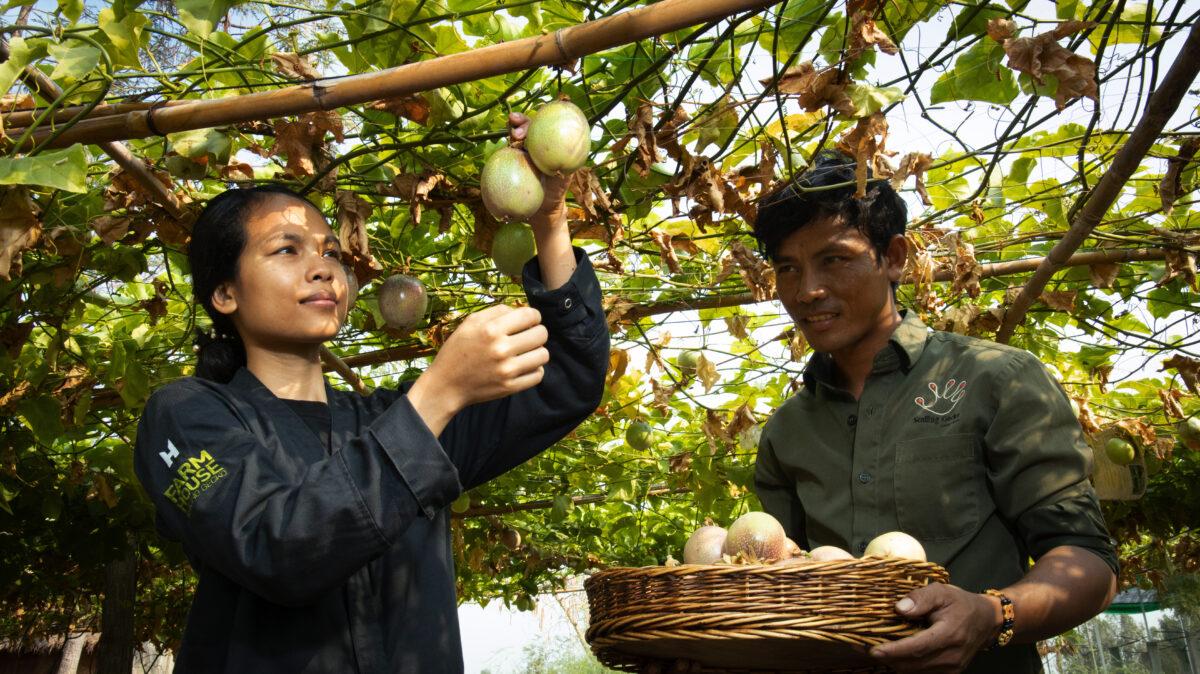

 (4 votes, average: 4.00 out of 5)
(4 votes, average: 4.00 out of 5)


2 thoughts on “Social sustainability in tourism – Tips on how to travel in a socially responsible way”